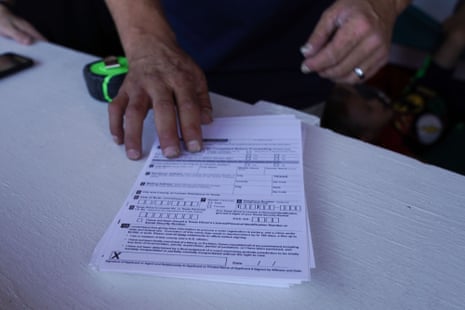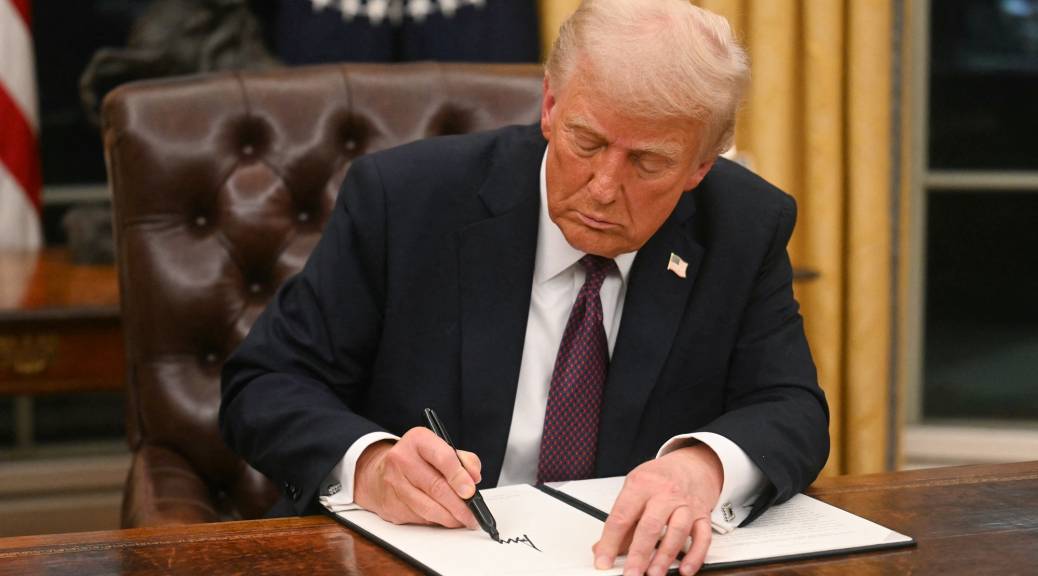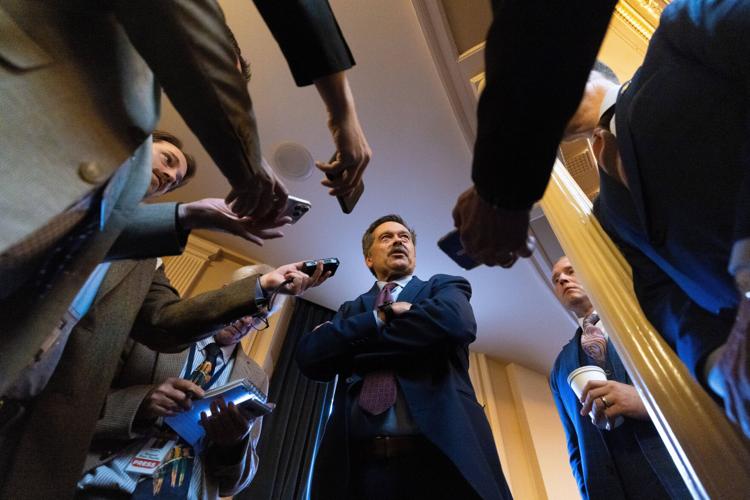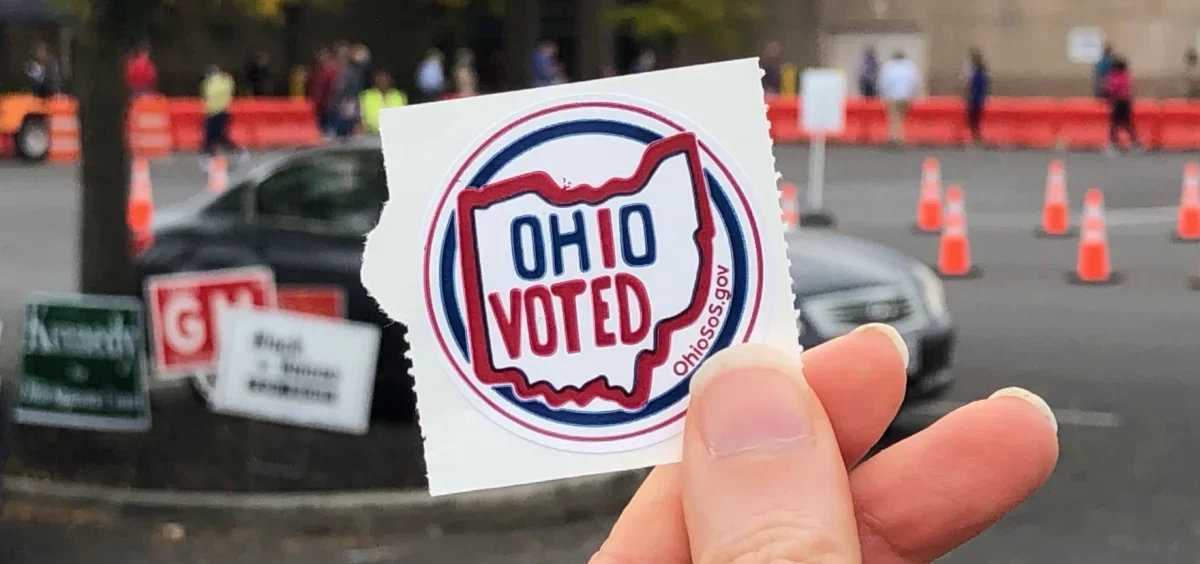
A federal judge has ruled the Trump administration cannot enforce an executive order requiring documented proof of US citizenship on federal voter registration forms, a decision the administration defends as a lawful effort to protect election integrity.
US District Judge Colleen Kollar-Kotelly in Washington, DC, on Friday found the requirement unconstitutional, writing that the president “lacks the authority to direct such changes.”
“The first question presented in these consolidated cases is whether the president, acting unilaterally, may direct changes to federal election procedures,” Kollar-Kotelly wrote in her opinion.
“Because our Constitution assigns responsibility for election regulation to the States and to Congress, this Court holds that the President lacks the authority to direct such changes.”
However, a spokesperson for the White House told Fox News Digital Trump acted within his legal powers.
Frustration with Trump gives Democrats an opening a year before the midterms
“President Trump has exercised his lawful authority to ensure only American citizens are casting ballots in American elections,” White House deputy press secretary Abigail Jackson told Fox News Digital in an email. “This is so commonsense that only the Democrat Party would file a lawsuit against it.
“We expect to be vindicated by a higher court.”
The judge sided with the plaintiffs — including the League of United Latin American Citizens (LULAC), the Democratic National Committee and the League of Women Voters Education Fund — arguing the Constitution “assigns no direct role to the president in either domain.”.
The ruling says the US Election Assistance Commission is permanently blocked from adding the requirement to the federal voter form, according to The Associated Press.
The lawsuit will continue as the judge examines other parts of Trump’s order, according to The Associated Press.
In March, President Trump signed an executive order mandating that anyone registering to vote provide government-issued proof of US citizenship.
The order also directed the attorney general to enter into information-sharing agreements with state election officials to identify cases of election fraud or other election law violations and conditioned federal election-related funds on states complying with federal election integrity measures.
“There are other steps that we will be taking in the coming weeks,” Trump said just before signing the order. “We think we’ll be able to end up getting fair elections.”
Frustration with Trump gives Democrats an opening a year before the midterms
President Donald Trump speaks to reporters in Palm Beach, Florida, on Oct. 31, 2025.REUTERS
Kollar-Kotelly previously issued a preliminary injunction in April, and another federal judge blocked the same March 25 executive order in June after a separate challenge brought by Democratic state attorneys general, The Associated Press reported.
The White House did not immediately respond to Fox News Digital’s request for comment.
Fox News’ Louis Casiano, Shannon Bream and Bill Mears contributed to this report.
US judge permanently blocks Trump order requiring voters to prove citizenship.


The ruling came in response to lawsuits by groups including the Democratic National Committee, the League of United Latin American Citizens and the League of Women Voters Education Fund.
The American Civil Liberties Union, which represents the League of Women Voters in the case, said on Friday that Americans without up-to-date passports should not be required to purchase new documents in order to exercise their rights.

The White House did not immediately respond to a request for comment.
Kollar-Kotelly found that part of the order was illegal because the U.S. Constitution gives states, not the president, the power to oversee elections.
Trump has long questioned the U.S. electoral system and continues to falsely claim that his 2020 loss to Democratic President Joe Biden was the result of widespread fraud. Trump and his Republican allies also have made baseless claims about widespread voting by non-citizens, which is illegal and rarely occurs.
Reporting by Dietrich Knauth; Editing by Chizu Nomiyama and Rosalba O’Brien
Judge allows Trump administration to fire most of DOJ race-relations agency’s employees
Pelosi: Trump Is a ‘Vile Creature, He’s the ‘Worst Thing on the Face of the Earth’

BOSTON, Oct 30 (Reuters) – A federal judge on Thursday allowed President Donald Trump’s administration to proceed with firing nearly every employee at a 1960s-era agency within the U.S. Department of Justice known as “America’s peacemaker” that is tasked with quelling racial and ethnic tensions in U.S. communities.
U.S. District Judge Indira Talwani in Boston declined, opens new tab at this early stage in the case to issue the temporary restraining order sought by civil rights groups that would bar the Justice Department from terminating 14 of the Community Relations Service’s 15 remaining employees on Friday.

The judge, an appointee of Democratic President Barack Obama, said the 11 plaintiff organizations failed to show they would be irreparably harmed by the job cuts or explain how they would impact services they currently need. At a Wednesday hearing, she had noted that the affected employees even if they remained on staff after Friday would be furloughed as a result of the government shutdown that began October 1.
But the ruling could prove to be only a temporary loss for the plaintiffs as the case proceeds, as Talwani said they were likely to ultimately prove the job cuts were part of an effort to unlawfully dissolve the Community Relations Service.
Michelle Obama Claims She Was Under a ‘Particularly White Hot Glare’ as First Black FLOTUS
“Plaintiffs have made a strong showing that they are likely to succeed on the merits, where Defendants concede that only Congress, and not the executive branch, may eliminate a Congressionally created agency,” she wrote.
The Justice Department and a lawyer for the plaintiffs did not respond to requests for comment.
The Community Relations Service was established by the Civil Rights Act of 1964 and since then has deployed teams to mediate school desegregation conflicts and address unrest in various high-profile cases, including after the 2020 death of George Floyd, a Black man who was killed by a white Minneapolis police officer.
Under Trump, the agency has declined all new requests for services and assistance, according to the lawsuit. The Justice Department on September 29 began the process of conducting the layoffs as part of a “reduction in force.”
Trump has proposed abolishing the agency, and his budget proposal contains no money for it. But the Justice Department in court filings says it is simply carrying out a reorganization at this time, as only Congress could eliminate the agency.
The plaintiffs, who include the Ethical Society of Police and two local branches of the NAACP, point to a termination notice one official received saying the job cuts are intended to effectuate “the dissolution of the Community Relations Service.”
Virginia, Ohio advance redistricting plans amid Trump-inspired national fray
Summary
Democratic lawmakers in Virginia cleared a first big hurdle on Friday in their bid to redraw congressional maps in their favor next year — a move that counters Republican-led redistricting efforts in other U.S. states at President Donald Trump’s urging.
Separately, Ohio’s redistricting commission approved a new map that boosts Republican chances of flipping two Democratic seats in 2026 but stops short of a more aggressive effort that could have targeted three Democratic incumbents.
The White House has pressured Republican-led states to reshape their House districts in an effort to maintain the party’s razor-thin majority in next year’s midterm elections. Democrats must flip only three Republican-held seats to wrest back control of the House.
The Democratic-controlled Virginia Senate on Friday approved a proposed constitutional amendment — passed earlier by the House of Delegates — that would let lawmakers redraw congressional districts next year if voters sign off. The 21-16 vote fell along party lines.
Virginia Democrats hold six of the state’s 11 seats in the U.S. House of Representatives and hope to gain at least two more by reconfiguring their districts ahead of the 2026 midterm elections.
Friday’s action was the first step toward bypassing the state’s independent redistricting commission — created by voters in 2020 — and taking control of the map-drawing process.The amendment must pass again in the next legislative session and then be approved by voters. Democrats plan to hold the second vote early next year after Tuesday’s statewide election and to put the measure on a special election ballot.AN UNPRECEDENTED REDISTRICTING WAR
This year’s widening coast-to-coast redistricting scramble is unprecedented in modern U.S. politics.Virginia Republicans, including Governor Glenn Youngkin, whose constitutionally limited four-year term ends in January, accused Democrats of attempting a power grab.“This amendment is being proposed not to protect our citizens or to make our government better,” Republican state Senator J.D. “Danny” Diggs said on the chamber floor on Friday. “This amendment is about increasing the political power of the Democrat Party.”Republicans also criticized the Democrats for pursuing their redistricting agenda after early voting was already under way for Virginia’s gubernatorial race, in which Youngkin’s Republican lieutenant governor, Winsome Earle-Sears, trails Democratic former U.S. Representative Abigail Spanberger in opinion polls.Democrats say they are fighting fire with fire after Trump unleashed a rare mid-decade redistricting push starting in Texas, where the legislature enacted new maps designed to flip five seats to the Republican column.“The system is being rigged by a wannabe dictator out of Washington,” Democratic state Senator Aaron Rouse said on Friday during debate over the bill.Michelle Obama Claims She Was Under a ‘Particularly White Hot Glare’ as First Black FLOTUS
At Trump’s behest, Missouri and North Carolina followed Texas with their own redistricting measures aimed at picking up one additional Republican seat each. Indiana’s Republican governor has called a special session next week to consider redistricting, and Republicans in Florida and Kansas have also said they are weighing redrawing their maps.In the deeply Democratic-led state of California, the party launched a redistricting counter-offensive seeking to flip five Republican-held seats, a plan that requires voter approval in a special election on Tuesday. As in Virginia, California’s lawmakers and voters must alter their state’s constitution to clear the way for a new partisan map.The process of redistricting – the periodic redrawing of the boundaries that define each state’s congressional and legislative districts – has traditionally been conducted just once a decade to account for demographic changes following the decennial U.S. Census.Both Republican and Democratic lawmakers have used redistricting to draw congressional maps to favor their own party, a practice known as partisan gerrymandering.OHIO REACHES BIPARTISAN COMPROMISE
In Ohio, state law required a new map this year because the previous map – under which Republicans won 10 of the state’s 15 U.S. House seats last year – was passed with no Democratic support.The Ohio Redistricting Commission, which includes five Republicans and two Democrats, unanimously approved a new map on Friday that makes two Democratic incumbents more vulnerable to Republican challenges next year, while shifting another competitive Democratic-held district further to the left.While favorable to Republicans, the map represents a compromise struck between Republicans and Democrats reflecting the uncertainty each party could have faced if the commission had failed to reach an agreement.In that scenario, the task of redistricting would have reverted to the Republican-controlled legislature, giving lawmakers a chance to pursue a far more aggressive map. But any bill passed by the legislature would have potentially been subject to a Democratic-backed voter referendum that could have kept the old map in place.Under Friday’s map, Republicans have 10 “safe” seats in 2026 while Democrats have two, according to Sabato’s Crystal Ball at the University of Virginia’s Center for Politics, which handicaps congressional races. The remaining three seats are rated “Leans Republican,” “Leans Democratic” and “Toss-up” – all considered competitive.Reporting by Steve Gorman in Los Angeles and Joseph Ax in New York; Editing by Howard Goller
Step into a world dedicated entirely to man's best friend - dogs. Our website is a treasure trove of heartwarming news, touching stories, and inspiring narratives centered around these incredible creatures. We invite you to join us in spreading the joy. Share our posts, stories, and articles with your friends, extending the warmth and inspiration to every corner.With a simple click, you can be part of this movement.

































:max_bytes(150000):strip_icc():focal(749x0:751x2):format(webp)/Kia-Thompson-110525-1-770510e2d37345cf861932e5224c360c.jpg?w=1200&resize=1200,0&ssl=1)








:max_bytes(150000):strip_icc():focal(899x646:901x648)/Tatiana-Schlossberg-Jack-Schlossberg-030126-02-ffbc8841a935444d9a68bdeab3cfe504.jpg?w=1200&resize=1200,0&ssl=1)

:max_bytes(150000):strip_icc():focal(945x312:947x314)/princess-eugenie-princess-beatrice-prince-andrew-101725-8cc56d707e11429b954450f483ca8c84.jpg?w=1200&resize=1200,0&ssl=1)






